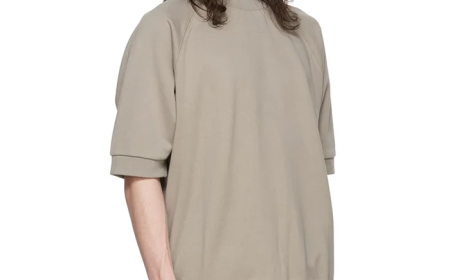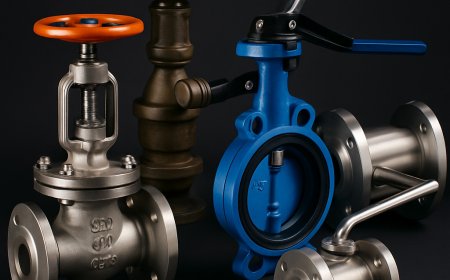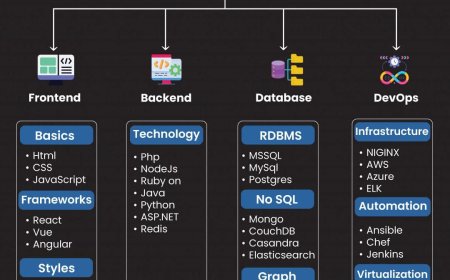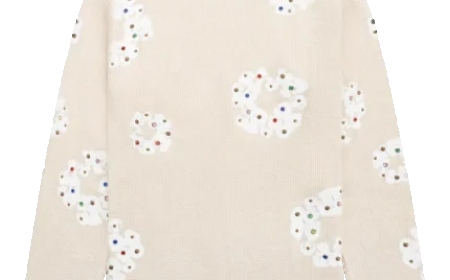How to book a fishing charter in Omaha
How to Book a Fishing Charter in Omaha Fishing in Omaha, Nebraska, might not be the first thing that comes to mind when picturing a premier angling destination—but beneath the surface of its rivers, reservoirs, and lakes lies a thriving, under-the-radar fishing culture. From the winding waters of the Missouri River to the stocked ponds of Lewis and Clark Lake, Omaha offers diverse freshwater exper
How to Book a Fishing Charter in Omaha
Fishing in Omaha, Nebraska, might not be the first thing that comes to mind when picturing a premier angling destination—but beneath the surface of its rivers, reservoirs, and lakes lies a thriving, under-the-radar fishing culture. From the winding waters of the Missouri River to the stocked ponds of Lewis and Clark Lake, Omaha offers diverse freshwater experiences for beginners and seasoned anglers alike. Booking a fishing charter in Omaha transforms a casual outing into a structured, guided adventure, complete with expert knowledge, premium gear, and access to prime fishing spots that are otherwise difficult to reach. Whether you’re targeting walleye, catfish, bass, or crappie, knowing how to book a fishing charter in Omaha ensures you maximize your time on the water, avoid common pitfalls, and return with unforgettable memories—and maybe even a trophy catch.
This guide is designed for anyone planning a fishing trip in the Omaha area—whether you’re a local looking to try something new, a visitor exploring the Midwest, or a group organizing a corporate retreat or family reunion. We’ll walk you through every step of the booking process, share best practices for selecting the right charter, highlight essential tools and resources, provide real-world examples of successful bookings, and answer the most common questions. By the end of this guide, you’ll have a clear, confident roadmap to securing the perfect fishing charter experience in Omaha.
Step-by-Step Guide
Step 1: Define Your Fishing Goals
Before you begin searching for charters, take a moment to clarify what you want from your fishing trip. Are you looking for a relaxed, family-friendly outing? Or are you after trophy-sized walleye or channel catfish? Your goals will directly influence the type of charter you need.
Begin by identifying your target species. In the Omaha region, common game fish include:
- Walleye – Found primarily in the Missouri River and Lewis and Clark Lake
- Channel Catfish – Abundant in the Missouri River and nearby reservoirs
- Largemouth and Smallmouth Bass – Popular in Lake Manawa and other local lakes
- Crappie – Seasonal catches in spring and fall around submerged structures
- Bluegill and Sunfish – Ideal for beginners and children
Next, consider group size. Are you fishing solo, with a partner, or with a group of six or more? Most charters operate with a maximum of 4–6 anglers per boat. If your group exceeds this, you may need to book multiple boats or find a larger vessel.
Finally, determine your preferred season. Fishing conditions vary dramatically throughout the year. Spring and early summer (April–June) are ideal for walleye and crappie. Late summer and early fall (July–September) offer excellent catfish and bass action. Winter ice fishing charters are also available in select locations.
Step 2: Research Local Fishing Charters
Once your goals are clear, begin researching charter operators in and around Omaha. Use search engines with targeted keywords such as “Omaha fishing charters,” “Missouri River fishing guides,” or “Lewis and Clark Lake fishing tours.”
Focus on operators with websites that include:
- Clear descriptions of services offered
- Photos of boats, equipment, and past catches
- Transparent pricing and package options
- Seasonal availability and booking calendar
- Customer reviews and testimonials
Some reputable operators based in the Omaha area include:
- Missouri River Fishing Guide – Specializes in guided walleye and catfish trips on the Missouri River
- Omaha Fishing Adventures – Offers family-friendly bass and panfish excursions on Lake Manawa
- Nebraska Fish & Fly – Provides fly-fishing and spin-casting charters on the Platte River and nearby reservoirs
- Big O Charters – Focuses on multi-species trips with overnight options
Don’t overlook local fishing forums, Facebook groups like “Nebraska Anglers United,” or Reddit communities such as r/FishingNebraska. These platforms often feature firsthand accounts and hidden gems not listed on commercial websites.
Step 3: Verify Licensing and Safety Credentials
Always confirm that the charter operator holds the proper state licensing and insurance. In Nebraska, commercial fishing guides must be registered with the Nebraska Game and Parks Commission (NGPC). While not always publicly displayed on websites, reputable operators will provide this information upon request.
Ask directly:
- Are you licensed by the Nebraska Game and Parks Commission?
- Do you carry liability insurance for passengers?
- Is your vessel inspected and compliant with U.S. Coast Guard safety standards?
Also verify that the guide has current First Aid and CPR certifications. While rare, emergencies can occur on the water—especially in fast-moving rivers like the Missouri. A guide trained in water rescue and emergency response adds an essential layer of safety.
Step 4: Review Services and Inclusions
Not all charters are created equal. Some offer bare-bones boat rentals with minimal support, while others provide full-service guided experiences. Make sure you understand exactly what’s included in the price.
Typical inclusions for a premium charter:
- Boat rental and fuel
- Professional guide with local knowledge
- All fishing gear (rods, reels, tackle, bait)
- Live or artificial bait provided
- Ice chest with drinks and snacks
- Fish cleaning and filleting services
- Photography services (some offer digital photos of your catch)
Be cautious of charters that advertise “low prices” but exclude essential items like bait or fishing licenses. In Nebraska, anyone 16 or older must have a valid fishing license. Some charters include this in their package—others require you to purchase it separately. Check the NGPC website to buy your license online before your trip.
Step 5: Check Availability and Book in Advance
Popular charters in Omaha book up quickly, especially during peak seasons (May–July and September). Even midweek slots can fill months in advance for weekend trips. Don’t wait until the last minute.
Most charters offer online booking through their websites, but many prefer direct communication via phone or email to discuss your specific needs. When booking, confirm:
- Date and time of departure and return
- Meeting point (usually a public launch ramp or marina)
- Weather cancellation policy
- Deposit requirements and refund terms
Always request a written confirmation—either email or PDF—detailing all agreed-upon terms. This protects you in case of miscommunication or last-minute changes.
Step 6: Prepare for Your Trip
Once your booking is confirmed, prepare for the day on the water. Here’s what to bring:
- Valid Nebraska fishing license (if not included)
- Photo ID (required for license verification)
- Weather-appropriate clothing – Layered clothing is key. Even in summer, mornings on the river can be chilly. Bring a waterproof jacket.
- Sunglasses and sunscreen – UV exposure is high on open water
- Non-slip footwear – Avoid sandals; wear boat shoes or water-resistant hiking shoes
- Camera or smartphone – For capturing memories
- Small cooler with extra snacks – Though most charters provide food, extra snacks are always welcome
- Medications and personal items – Motion sickness pills if needed, insect repellent, etc.
Do not bring alcohol. Most charters prohibit it for safety reasons, and Nebraska law strictly enforces boating under the influence.
Step 7: Arrive Early and Communicate
Arrive at the meeting point at least 15–20 minutes before your scheduled departure. This gives time for check-in, safety briefings, and equipment distribution.
During the pre-trip discussion, communicate clearly with your guide:
- Any physical limitations or health concerns
- Experience level (beginner, intermediate, advanced)
- Specific fish species you’re targeting
- Whether you plan to keep or release your catch
A good guide will tailor the trip to your preferences. Don’t be shy about asking questions—this is your time on the water.
Step 8: Follow On-Water Etiquette and Regulations
Respect the guide’s instructions. They know the river’s currents, underwater structures, and fish behavior better than anyone. Avoid sudden movements, keep gear organized, and don’t interfere with lines while others are casting.
Follow all Nebraska fishing regulations:
- Bag limits for each species
- Size restrictions (e.g., walleye must be at least 15 inches)
- Protected areas (no fishing in state wildlife refuges without special permits)
Many charters practice catch-and-release for trophy fish. If you plan to keep fish for eating, confirm the guide’s cleaning policy in advance. Most will fillet your catch on the boat and pack it in ice for you to take home.
Step 9: Provide Feedback and Leave a Review
After your trip, take a few minutes to leave an honest review on Google, Yelp, or the charter’s website. Your feedback helps other anglers make informed decisions and encourages operators to maintain high standards.
Also consider sending a thank-you note or small tip (15–20% is customary for exceptional service). Guides work long hours in all weather conditions—recognition goes a long way.
Step 10: Plan Your Next Trip
If you had a great experience, consider booking a seasonal return trip. Many charters offer discounts for repeat customers or group bookings. You might also ask about multi-day excursions, night fishing trips, or specialized techniques like ice fishing in winter.
Keep a log of your catches, locations, and techniques. Over time, you’ll develop your own fishing strategy—and your guide will appreciate your growing knowledge.
Best Practices
Book Early, Especially for Weekends
Weekend slots on popular charters in Omaha are often reserved weeks or even months in advance. If you’re planning a trip for a holiday weekend like Memorial Day or Labor Day, book at least 60–90 days ahead. Midweek trips (Tuesday–Thursday) are less crowded and sometimes offered at discounted rates.
Choose a Guide Who Specializes in Your Target Species
Not all guides are equally skilled in every type of fishing. A guide who excels at bass fishing on Lake Manawa may not have the same expertise in trolling for walleye on the Missouri River. Ask potential guides: “What’s your most successful technique for catching [species] in [location] right now?” Their answer will reveal their depth of knowledge.
Ask About Weather Contingencies
Nebraska weather can change rapidly. Thunderstorms, high winds, or flooding can cancel trips. Ensure the charter has a clear policy: Will you get a full refund? A credit for a future date? A partial refund? Avoid operators who offer no policy at all.
Opt for Smaller Groups for Better Experience
While it might be tempting to book a large group to split costs, smaller groups (2–4 people) typically get more personalized attention, more casting time, and better access to prime fishing spots. A 6-person boat can feel cramped and reduce overall catch rates.
Don’t Skip the Safety Briefing
Even if you’re an experienced boater, every vessel has unique features. The guide will explain emergency equipment locations, how to use life jackets, and what to do if someone falls overboard. Never assume you know the drill—this is not the time to be overconfident.
Be Realistic About Catch Rates
While charters promise “guaranteed catches,” fishing is never guaranteed. A good guide will set realistic expectations: “We usually catch 5–10 walleye per person on a 6-hour trip.” If a guide claims you’ll catch “dozens of trophy fish,” be skeptical. Authentic operators focus on experience, not hype.
Respect the Environment
Practice catch-and-release for non-target species and undersized fish. Use barbless hooks when possible. Never litter. Remove all trash—including fishing line and bait containers—from the boat. Many charters now partner with conservation groups; ask how you can support local habitat efforts.
Learn Basic Terminology
Understanding terms like “trolling,” “jigging,” “bottom bouncing,” or “spooning” helps you communicate better with your guide. A quick 10-minute YouTube search on “fishing techniques for Nebraska rivers” can make your trip far more enjoyable and educational.
Bring a Portable Power Bank
Cell service can be spotty on the Missouri River. A fully charged power bank ensures your phone stays on for photos, GPS navigation, and emergency calls.
Document Your Trip
Take notes or record audio during your trip. What bait worked? What depth did you fish at? What time of day was most productive? This information is invaluable for future trips—and it helps your guide improve their service.
Tools and Resources
Nebraska Game and Parks Commission (NGPC) Website
outdoornebraska.gov is your official source for fishing regulations, license purchases, seasonal updates, and water condition reports. The site includes a real-time fishing report tool that shows recent catches, water levels, and recommended lures by location.
Google Maps and Fishing Spotter Apps
Use Google Maps to locate public boat ramps near Omaha: Lewis and Clark Lake, Lake Manawa, DeSoto National Wildlife Refuge, and the Missouri River access points near Plattsmouth and Fort Calhoun. Apps like FishAngler and Fishbrain allow you to view user-submitted catch reports, photos, and GPS coordinates of productive hotspots.
Fishing Forecast Websites
Check FishWeather.com or Solunar.com for daily fishing forecasts based on moon phases, barometric pressure, and weather patterns. These tools help you determine the best times to fish each day—often more accurate than general weather apps.
Local Bait and Tackle Shops
Stop by a local shop before your trip for advice. Popular Omaha-area shops include:
- Big O’s Bait & Tackle – Located near Lewis and Clark Lake
- Nebraska Angler Outfitters – Offers gear rentals and expert advice
- Omaha Fishing Supply – Carries specialized jigs and live bait
Staff at these shops often work with local guides and can recommend reliable charters based on current conditions.
Online Booking Platforms
While many charters operate independently, some list their services on third-party platforms:
- GetMyBoat.com – Lists private and commercial fishing charters
- BookIt.com – Features guided fishing experiences in Nebraska
- Airbnb Experiences – Occasionally lists unique fishing tours
Use these platforms to compare prices and read verified reviews—but always cross-check with the operator’s own website for the most accurate details.
Weather and River Condition Tools
Monitor river levels using the U.S. Geological Survey’s streamgage data:
High water levels (above 10,000 cfs on the Missouri) can make fishing dangerous. Low water levels (below 3,000 cfs) may reduce fish activity. Aim for moderate flows (5,000–8,000 cfs) for optimal conditions.
YouTube Channels and Podcasts
Learn from local experts:
- Nebraska Fishing TV – Weekly videos on Omaha-area techniques
- The Midwest Angler Podcast – Interviews with Nebraska guides and biologists
- Walleye Nation – Focuses on Missouri River walleye fishing
These resources provide insights you won’t find in brochures—like how to read current seams or where fish hold during spawning season.
Real Examples
Example 1: Family-Friendly Bass Fishing Trip
Casey, a father of three from Lincoln, wanted to surprise his kids with a fishing trip for their summer break. He searched for “family fishing charters Omaha” and found Omaha Fishing Adventures. The guide offered a 4-hour morning trip on Lake Manawa with rods, bait, and life jackets included. Casey booked two weeks in advance for a Saturday in June.
On the day of the trip, the guide arrived early, helped the kids rig their rods, and taught them how to cast. They caught 12 largemouth bass under 14 inches—released all but two for dinner. The guide filleted the fish on the boat and packed them in ice. Casey’s kids were thrilled. He left a 5-star Google review and booked a fall crappie trip for the whole family.
Example 2: Corporate Team-Building Walleye Trip
A marketing firm in downtown Omaha wanted to host a 10-person team-building event. They contacted Big O Charters, which arranged two boats for a full-day walleye trip on the Missouri River. The company paid for all gear, lunch, and photos. The guide shared fishing tips between casts and encouraged team collaboration—“Who’s got the next cast?” became a running theme.
By noon, each boat had landed 8 walleye over 20 inches. The guide provided a cooler of fillets for the team to take home. The event was so successful that the company now books the same charter annually.
Example 3: Solo Angler Seeking Trophy Catfish
Mark, a retired engineer from Council Bluffs, wanted to catch a Nebraska state-record channel catfish. He researched for months, read forums, and contacted three guides. He chose Missouri River Fishing Guide after seeing their photo gallery of 30+ pound catfish caught on Carolina rigs.
Mark booked a 10-hour overnight trip in August. The guide used cut shad and live bluegill on the river’s deep holes. At 3 a.m., Mark landed a 41-pound catfish—the largest of his life. The guide helped him measure and photograph it. Mark submitted the catch to NGPC for official recognition. He now writes blog posts about his experiences and refers friends to the same guide.
Example 4: Winter Ice Fishing Adventure
A group of four friends from Omaha wanted to try ice fishing for the first time. They found a small operator on Facebook who offered ice fishing charters on the frozen Platte River near Blair. The guide provided ice augers, shelters, heaters, and live wax worms. They caught 30+ crappie and bluegill in four hours. The guide cleaned and fried their catch on a portable stove. One friend said it was “the most unique day of the year.” They’ve booked the same trip every January since.
FAQs
Do I need a fishing license to book a charter in Omaha?
Yes. Anyone 16 years or older must have a valid Nebraska fishing license, even when fishing with a guide. Some charters include the license in their package—always confirm this before booking. Licenses can be purchased online at outdoornebraska.gov.
What’s the best time of year to book a fishing charter in Omaha?
Spring (April–June) is ideal for walleye and crappie. Summer (July–August) offers excellent catfish and bass fishing. Fall (September–October) is great for late-season bass and schooling crappie. Winter ice fishing charters are available from December to February, depending on ice conditions.
How much does a fishing charter in Omaha cost?
Prices vary by duration and group size. Half-day trips (4–5 hours) typically range from $300–$500. Full-day trips (8–10 hours) cost $600–$900. Multi-day or overnight charters may exceed $1,200. Most operators charge per boat, not per person, so splitting the cost among 4–5 people makes it very affordable.
Can I bring my own fishing gear?
Yes, but most charters provide all necessary equipment. If you have specialized rods or lures you prefer, bring them—but ask the guide first. Some techniques require specific gear, and your guide may recommend using theirs for optimal results.
What happens if the weather is bad on the day of my trip?
Reputable charters will cancel if conditions are unsafe (high winds, lightning, or flooding). Most offer a full refund or credit for a future date. Always ask about their weather policy before booking.
Can children join fishing charters?
Absolutely. Many charters specialize in family trips and provide child-sized gear, life jackets, and patience for beginners. Most guides welcome children as young as 5, though check age limits with the operator.
Do I have to keep the fish I catch?
No. You can release any fish you catch. Many charters encourage catch-and-release for trophy fish. If you want to keep fish for eating, confirm the guide’s cleaning policy in advance.
How far in advance should I book a charter?
For weekends or holidays, book 60–90 days ahead. For midweek trips, 2–4 weeks is usually sufficient. Last-minute cancellations do occur, so check for availability even if you’re booking on short notice.
Is tipping customary for fishing charters?
Yes. A tip of 15–20% is standard for exceptional service, especially if the guide went above and beyond—whether by finding fish, teaching techniques, or ensuring safety. Tipping is appreciated but never required.
Can I book a charter for a special occasion like a birthday or proposal?
Many operators are happy to accommodate special events. Let them know in advance—they may decorate the boat, provide a cake, or take photos for you. Some even offer sunset cruises with music and snacks.
Conclusion
Booking a fishing charter in Omaha is more than just reserving a boat—it’s about unlocking a deeper connection with the natural environment, learning from seasoned experts, and creating memories that last a lifetime. Whether you’re casting a line for the first time or chasing your next state record, the right charter transforms a simple outing into a meaningful, well-planned adventure.
By following this guide—from defining your goals and researching reputable operators to preparing for the day and respecting local regulations—you position yourself for a successful, safe, and rewarding experience. Omaha’s waters hold incredible potential, but only those who plan wisely reap the full rewards.
Don’t just dream about catching your first walleye or landing a giant catfish—make it happen. Use the tools, follow the best practices, and trust the experts. The river is waiting. All you have to do is book your trip.





















